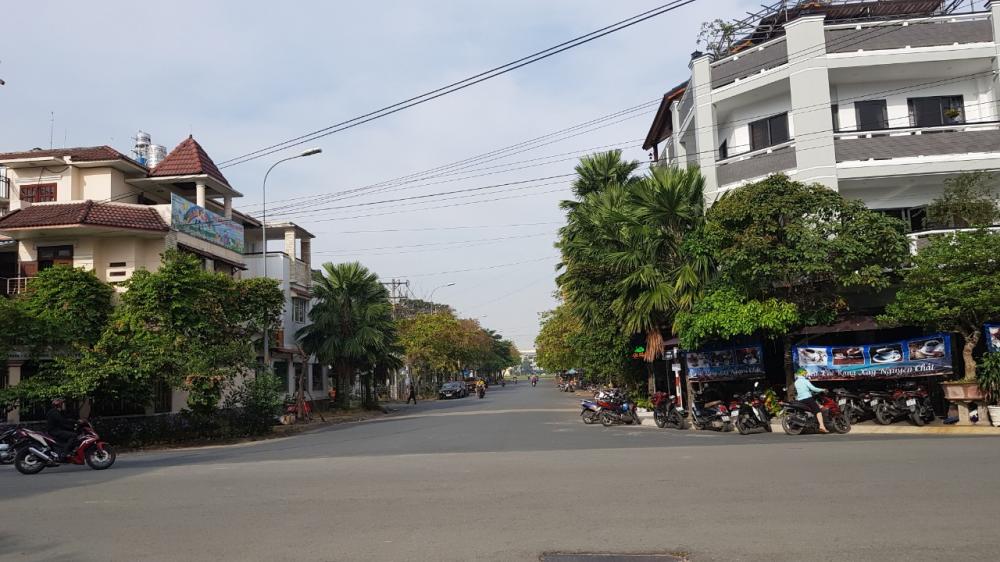Speaking at the training event Expert Talk # 14 organized by Batdongsan.com.vn with the topic "Essential knowledge for buying a home and investing in real estate", Mr. Nguyen Quoc Anh, Deputy General Director of Batdongsan.com.vn said Vietnamese investors currently don’t have many investment options to choose from. While the stock market is still in its infancy, banks tend to tighten savings interest rates, gold has a low profit margin (16 times lower than real estate’s), real estate, with a 21-fold price increase during the last 6 years, become a super-profitable investment option favored by domestic and international investors.
“Most international investors, after they learn about Vietnam real estate market, think this is a potential market, or a lucrative “gold mine” with faster growth of home value than many other countries in Southeast Asia. For investors, Ho Chi Minh City (HCMC) is now a good market to buy real estate. Vietnam market will not face a "bubble", at least in next 3-4 years. The market is in a stable phase and not as precarious as it was before, ”Mr. Quoc Anh stressed.

Training event ExpertTalk#14 by Batdongsan.com.vn.
Data of Batdongsan.com.vn also shows the average home prices in Hanoi and HCMC are too high compared to the current average income. Specifically, average home price in Hanoi is about $2,200 per sqm, while it reaches $2,400 in HCMC. With the current average income, it takes HCMC people about 30 years to buy a home, and 25 - 28 years for Hanoi people. However, experts of Batdongsan.com.vn also pointed out that compared to other regional countries, home prices in Vietnam are very attractive to international investors.
For comparison, average home price in Kuala Lumpur (Malaysia) reaches $3,000 per sqm, Bangkok $4,900 per sqm, Singapore $17,000 per sqm, and Hong Kong $29,000 per sqm. Meanwhile, home prices in China’s provinces range from $ 5,000-15,000 per sqm. “Chinese experts said Vietnam's real estate market is very similar to China’s. During the last decades, there were many concerns that the Chinese real estate market are forming a bubble and it will explode sooner or later. However, the fact shows the market is still developing steadily. China’s home prices continue to increase over the years, and the same thing is happening in Vietnam, ” said Mr. Quoc Anh.
Also according to data in Batdongsan.com.vn’s market report, in Q1-2019, users were interested in house and apartment segments the most. These two segments attracted a lot of potential buyers, with 32% of users seeking landed houses, while 28% looking for apartments. Residential land segment and townhouse segment made up 16% and 13% of total number of searchers, respectively.
In the first quarter of the year, as there are almost no products entering the market, the segments of project land and villa/townhouse did not attract buyers. The number of interested users only accounted for 9% and 8%, respectively.

A corner of District 12, which led the city in number of searches for townhouses.
The Eastern Saigon, which is represented by District 9, continued to lead the city with nearly 6 million searches, followed by Thu Duc District with 5.8 million. The South Saigon saw “hot spots” including District 7 and Binh Thanh District. The most sought-after segments in all of the top 4 districts were apartment and residential land. Notably, in the first quarter, District 2 left the top 5 markets with the highest demand for real estate search and ranked 7th, with about 5 million searches.
In terms of price movements, during the period, real estate prices continued the upward trend with the highest increase in high-end segment. Specifically, the high-end apartment price rose from VND45 million per sqm to VND47 million per sqm, mid-end segment from VND29 million per sqm to VND30.3 million per sqm, while affordable segment reached nearly VND23 million per sqm from VND22.2 million per sqm. Notably, luxury apartments are the only segment that saw a sharp decline in price, from VND98.9 million per sqm to VND92.4 million per sqm, down nearly 14.4 percent.
According to Mr. Quoc Anh, from now until 2021, HCMC authorities will tighten licensing of new building projects in the central area. This policy may make the supply of apartments drop by 40% in 2019. Supply shortage is expected to remain at least in the first half of this year.


















